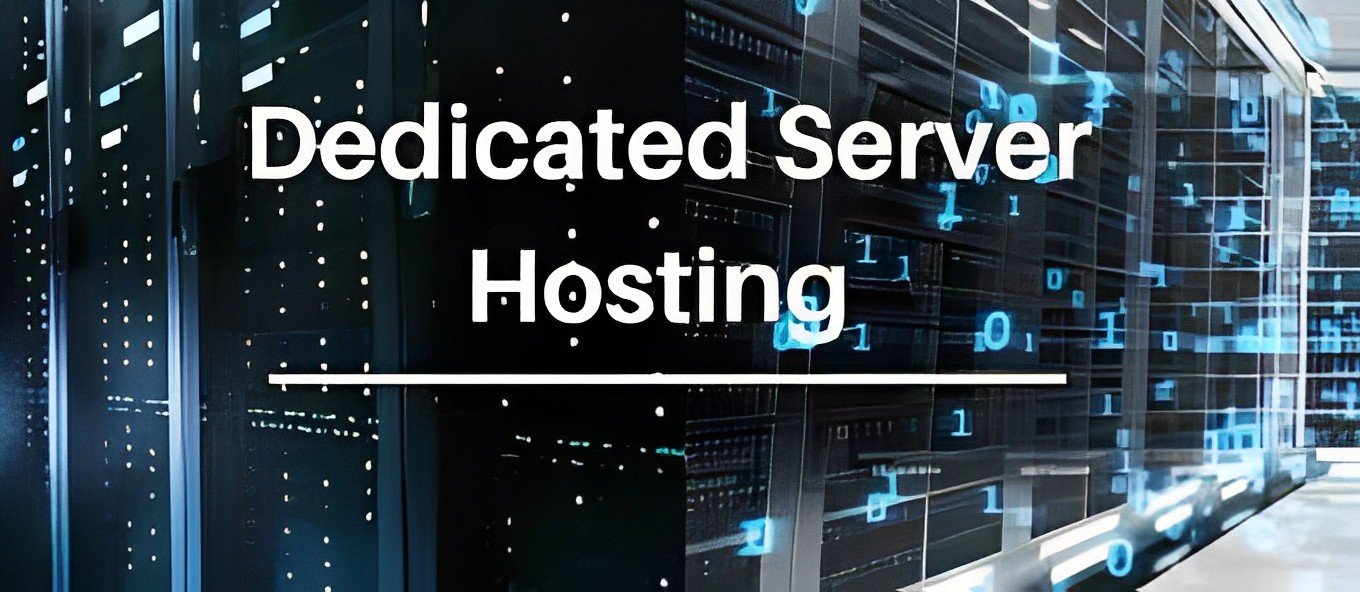The Pros and Cons of Dedicated Web Hosting
When it comes to web hosting, one of the most robust and reliable options is dedicated hosting. Unlike shared or VPS hosting, a dedicated hosting plan provides an entire server exclusively for your website. This makes it an attractive option for high-traffic sites, large businesses, and mission-critical applications.
However, dedicated hosting isn’t for everyone. In this article, we’ll explore the pros and cons of dedicated web hosting to help you decide if it’s the right solution for your needs.
What is Dedicated Web Hosting?
Dedicated web hosting means renting an entire physical server from a hosting provider. The server is not shared with any other users, giving you complete control over its configuration, resources, and security.
With dedicated hosting, you can customize the server to meet the specific requirements of your website, whether it’s a resource-heavy e-commerce store, a media-rich platform, or a high-traffic application.
The Pros of Dedicated Web Hosting
1. Full Control and Customization
Dedicated hosting gives you root access to the server, enabling you to:
- Install custom software and operating systems.
- Optimize server settings for your specific needs.
- Scale hardware resources like RAM, storage, and CPU as required.
2. Exclusive Resources
You won’t share server resources like bandwidth, memory, or CPU with other websites. This ensures:
- High-speed performance even during traffic spikes.
- Stable and predictable server performance.
3. Enhanced Security
With exclusive server access, the risk of security breaches from other users (common in shared hosting) is eliminated. Dedicated hosting offers:
- Advanced firewalls and malware protection.
- Customizable security protocols tailored to your business.
4. Superior Performance
Since resources aren’t shared, dedicated hosting is ideal for:
- High-traffic websites that require consistent uptime and speed.
- Resource-intensive applications like video streaming or large databases.
5. Scalability for Growth
A dedicated server can be scaled easily to accommodate growing traffic or increased resource needs. Hosting providers often offer flexible upgrades for storage, RAM, and other hardware.
6. Dedicated IP Address
With dedicated hosting, you’ll receive a unique IP address. This is particularly important for:
- Running e-commerce sites requiring secure transactions.
- Avoiding blacklisting issues associated with shared IP addresses.
The Cons of Dedicated Web Hosting
1. Higher Cost
Dedicated hosting is one of the most expensive hosting solutions. Costs include:
- Higher monthly fees compared to shared or VPS hosting.
- Additional charges for upgrades, maintenance, and software licenses.
2. Technical Expertise Required
Managing a dedicated server often requires advanced knowledge of:
- Server configuration and maintenance.
- Security protocol implementation.
- Troubleshooting and performance optimization.
Without expertise, you may need to hire a system administrator, adding to the overall cost.
3. No Built-In Redundancy
If your dedicated server experiences hardware failure, it may lead to downtime unless the provider offers:
- Backup services.
- Quick hardware replacement guarantees.
4. Overkill for Small Websites
For small or medium-sized websites, the resources and cost of dedicated hosting may be unnecessary. VPS or shared hosting might be more appropriate.
5. Management Responsibility
Unlike managed hosting plans, most dedicated hosting options are self-managed. This means you’re responsible for:
- Regular updates and patches.
- Ongoing monitoring and server maintenance.
Managed dedicated hosting is available but comes at an additional cost.
When to Choose Dedicated Web Hosting
Dedicated hosting is ideal for:
- High-Traffic Websites: Sites receiving millions of visitors monthly.
- Resource-Intensive Applications: Platforms requiring heavy computational power or extensive storage.
- E-Commerce Stores: Businesses needing high performance and robust security for transactions.
- Customized Server Needs: Websites requiring unique configurations or software setups.
Alternatives to Dedicated Web Hosting
If dedicated hosting feels too expensive or complex, consider these alternatives:
- Shared Hosting: A budget-friendly option for small websites with low traffic.
- VPS Hosting: Offers a balance between cost and performance, with allocated resources on a shared server.
- Cloud Hosting: Scalable and reliable for growing businesses, charging only for the resources used.
Key Features to Look for in a Dedicated Hosting Provider
If you decide that dedicated hosting is the right fit, ensure your provider offers:
- High Uptime Guarantee: Look for 99.9% or higher uptime.
- 24/7 Technical Support: Essential for resolving issues quickly.
- Hardware Customization: Flexibility to upgrade RAM, CPU, and storage.
- Backup Solutions: Regular backups to protect your data.
- Security Enhancements: Advanced firewalls, SSL certificates, and malware protection.
Conclusion
Dedicated web hosting is a powerful solution for websites that demand high performance, security, and customization. However, its high cost and complexity make it suitable primarily for large-scale or mission-critical websites.
By weighing the pros and cons, you can determine whether dedicated hosting aligns with your needs. For small businesses or those on a budget, exploring alternatives like VPS or cloud hosting may be a better option. If you’re ready to commit to dedicated hosting, choose a provider that offers reliable support, robust features, and the scalability to grow with your business.



